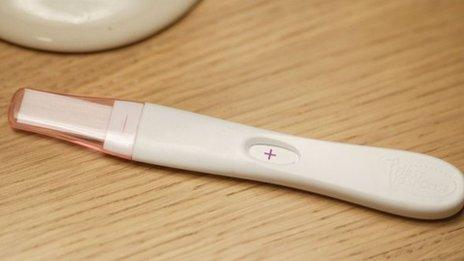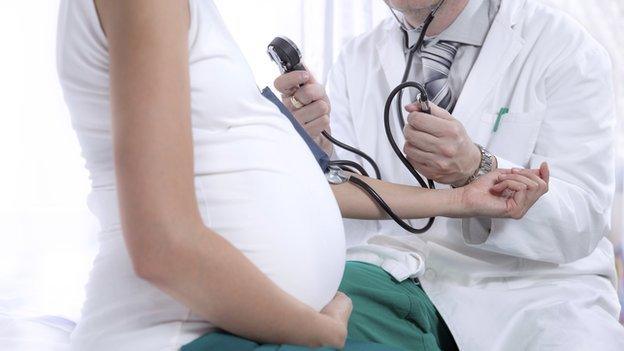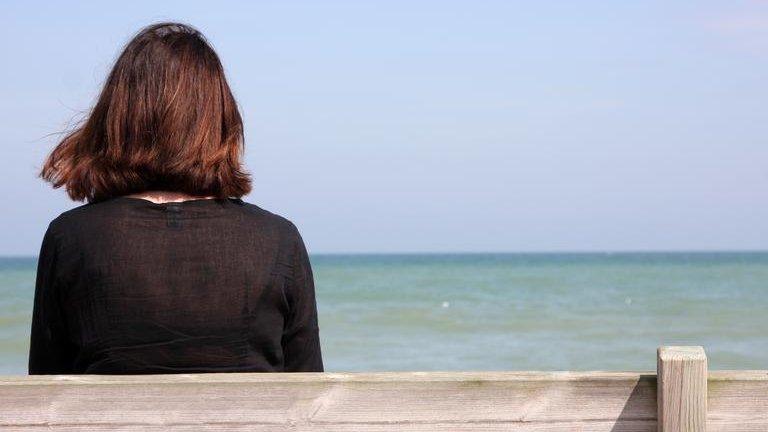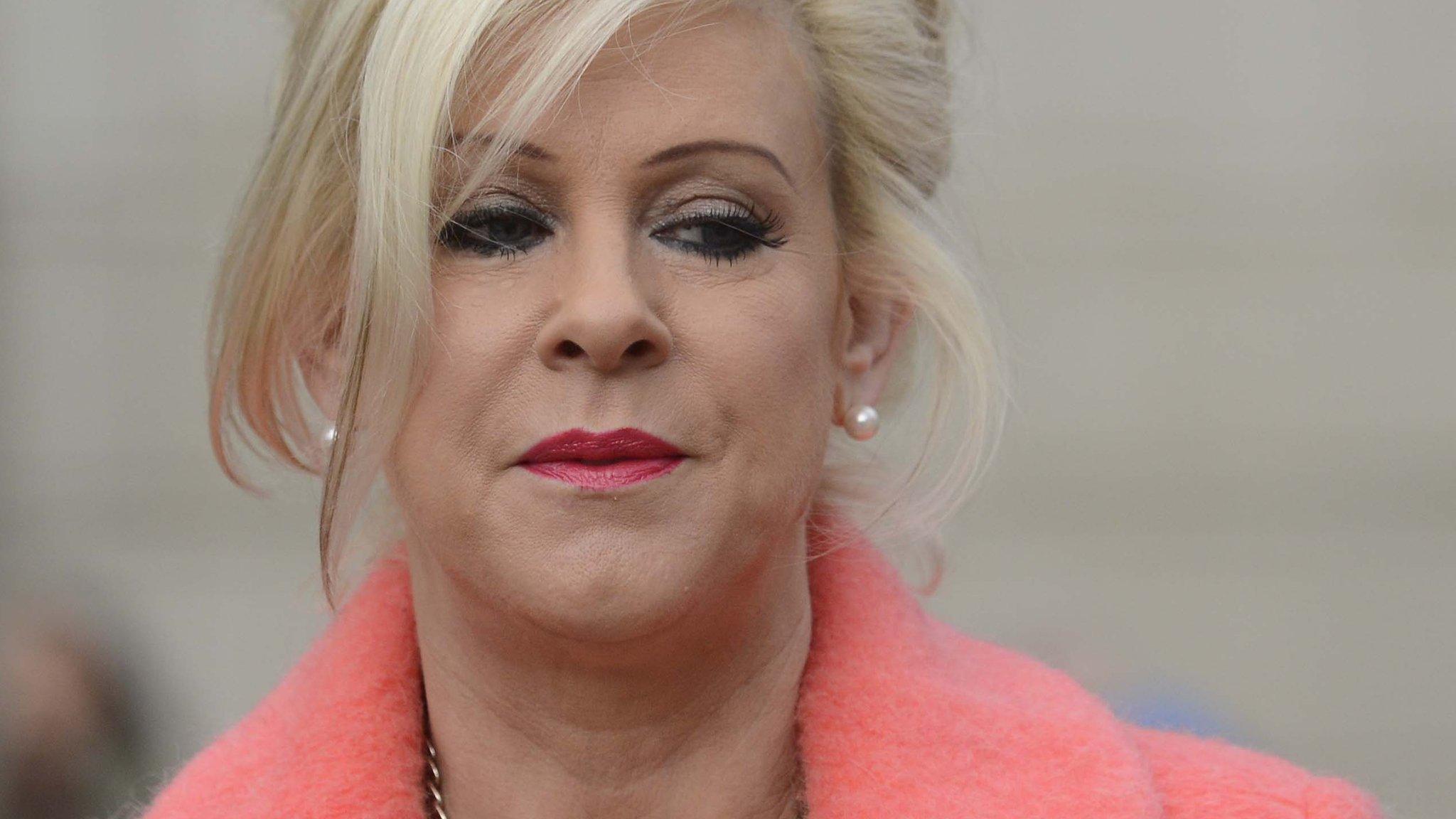Amnesty International: Abortion services in Northern Ireland 'postcode lottery'
- Published
A report by Amnesty International criticises lack of guidance for cases of lethal foetal abnormality
Amnesty International has said it is a postcode lottery when it comes to how women in Northern Ireland can access legal abortions, including counselling services.
In a report it is also highly critical of the current law, including the lack of guidance for cases of lethal foetal abnormality.
Northern Ireland's abortion law differs from the rest of the UK.
It is only allowed in very restricted circumstances.
The only exceptions are to save a woman's life or if there is a risk of permanent and serious damage to her mental or physical health.
From the current law to the stigma associated with abortion - this is an extensive piece of work carried out by the human rights organisation, Amnesty International.
The overriding theme is access to abortion services, which it concludes falls short of the standards required by the UK's international human rights obligations.
It said women's access to and experience of healthcare facilities varies depending on their health trust.
'Individual doctors'
It is a view that is supported by the Royal College of Midwives, the Family Planning Association and Marie Stopes, who said women were being sent from Fermanagh to Belfast in the hope that an obstetrician there would perform a termination.
Dawn Purvis from Marie Stopes said: "It comes down to individual doctors whether they do it or not. There's no uniform access across hospitals or across the different hospital trusts.
"Women from Fermanagh were being sent to the Royal Victoria Hospital for a test, which is well within the rights of other trusts to do.
"But that was essentially just shipping out the problem to Belfast knowing that there may be an obstetrician who would perform a termination on that woman."
The report also cites what it describes as the barriers that are in place in Northern Ireland preventing women accessing an abortion.
They include severely restrictive laws, limited political will to legislate for change; deep underlying stigma and a lack of comprehensive sexual education.
Grainne Teggart, a spokesperson for Amnesty International, said: "One of the most concerning issues to come out of this report is that there is a post code lottery in Northern Ireland and that means that some women can access abortion services and others can't and that can vary across the various health trusts.
"So, for example, a woman in the Belfast Health Trust has a greater chance of accessing an abortion service than a woman in Fermanagh South Tyrone because of the 2013 guidelines which has instilled a climate of fear among doctors.
"And we heard that from clinicians, doctors, health professionals and also the women trying to access the services."
The report highlights that the law governing abortion in Northern Ireland is one of the most restrictive in Europe, both in law and in practice.
It said only the Republic of Ireland and Malta were more restrictive.
Frustrating
The British Pregnancy Advisory Service said from their perspective a postcode lottery service was operating.
Donagh Stenson said the result was both sad and frustrating.
"It feels like the situation is getting worse in Northern Ireland," she said..
"These days because diagnostics are so advanced women are able to tell us they are coming due to a lethal foetal abnormality.
"But it's also clearer that the help a woman gets here depends on where she lives. If they are from Belfast from our experience there are more clinicians who are likely to help or take part in her care.
"Outside of Belfast there appears to be no help at all for women."
According to the authors, as women in Northern Ireland who have an abortion and those who assist her can be imprisoned this also means Northern Ireland carries the harshest criminal penalty in Europe.
Research includes testimonies from women and girls who experienced abortion regulations in Northern Ireland.
- Published6 January 2015

- Published10 December 2014

- Published8 October 2014

- Published18 August 2014

- Published19 November 2014
